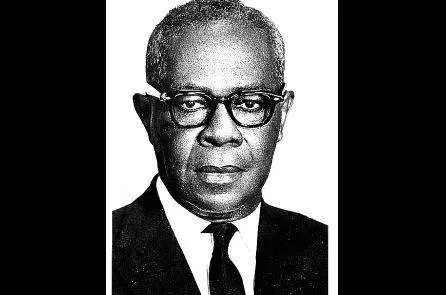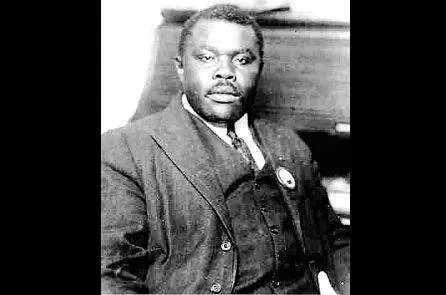
Floccinaucinihilipilification — a Jamaican disease
According to the Concise Oxford English Dictionary, floccinaucinihilipilification, a noun, means the action or habit of estimating something as worthless. It is derived from four Latin words: flocci, nauci, nihili, pili, meaning ‘at little value’. In Jamaica, there is a growing tendency to undervalue as well as devalue just about everyone and everything. As a result, there is a pervasive number of Jamaicans who suffer from inferiority complex and this lack of confidence in themselves has oftentimes led to violence, indiscipline, slovenliness and underachievement.
National Hero Marcus Mosiah Garvey must have discerned this national tendency many decades ago when he opined that “If you have no confidence in self, you are twice defeated in the race of life.” Of course, one of the main contributors to this lack of confidence is the fact that too many Jamaicans despise the fact that they are black. This issue has been shoved under the carpet on the basis that the Jamaican population is predominantly black and so there is no need for there to be a feeling of intimidation. This is poppycock because too many black Jamaicans feel that anything too black “no good,” hence the “bleaching frenzy that has overtaken us.
Again, Garvey tackled this issue head-on when he said, “The black skin is not a badge of shame, but rather a glorious symbol of national greatness.” It is utterances like this that justifies the teaching of Garveyism in our schools. And in this context, it is no secret that one of the reasons why prime minister Portia Simpson Miller does not enjoy much popularity among the middle and upper classes is because she is black. One also recalls the ridicule and condescension which greeted our first black Governor General and his wife, Sir Clifford and Lady Campbell when they occupied King’s House.
The ruling People’s National Party (PNP) in celebrating its 75th year, without coming across as being racist, must unapologetically tackle this issue because in the very final analysis, until the majority of Jamaicans can comfortably accept their blackness, then the attainment of economic independence and social stability will remain an elusive dream. It is no coincidence that so many of our young men and women are illiterate and unskilled; it is instructive that most violent crimes are committed by males 25 and under and that most of these individuals are unemployed and hopeless. One of the responses to this wretched situation by both the Jamaica Labour Party (JLP) and the PNP is to provide these persons with “bolo work”, perhaps the closest resemblance to slavery days outside of chopping sugar cane. Not that it is degrading to bush sidewalks, but to me it is one of the greatest wastes of state funds. What we need to see is the establishment of cottage industries and community-based projects that empower these persons and give them a sense of dignity and self-worth.
Another ugly side to this value issue is the harsh reality that so many black Jamaicans despise their own kind. I have frequently told the true story about a born Montegonian who migrated to Canada and married a white woman there. This Jamaican black man showed off on his wife how in Jamaica the National Motto is: “Out of Many, One People.” So he took her to his island home for a vacation in the western city and they stayed in a hotel along the Hip Strip on Gloucester Avenue. One day they decided to take a stroll along that popular thoroughfare and it so happened that they wanted to answer the call of nature so they approached a security guard (black) at a nearby hotel seeking permission to use the rest room. The security guard took one look at them both and pointed to the wife and said, “You can go but him can’t go in there.” “But, sir, she is my wife!” he protested. “Me no business,” was his gruff reply. Need I say more?
Whether we like to say it or not, black Jamaicans think that they are inferior to their white counterparts. And this thought process is not only to be found in the lower classes. Many upwardly mobile Jamaican black men marry a “browning” or white woman deliberately so. I well recall a rural spinster who bemoaned the fact that her one and only son wedded a black woman. She wanted “nice, brown grand pickneys, no black bud!”
It was only a few years ago, that the black in the Jamaican Flag was divested of its original symbolism of its standing for “Hardship”. In this age of IMF deal, a sliding dollar and hence an economy that is in free fall, a confident Jamaican people is necessary to take us forward to a path of growth, peace and stability. But the average Jamaican needs to be emboldened by a society in which justice, according to Negro poet Langston Hughes, reads thus: “That Justice is a blind goddess is a thing to which we blacks are wise, Her blindfold hides two festering sores which once perhaps were eyes.” This is the most critical issue facing Jamaica today: the lack of economic and social justice. Indeed, the playing field is far from being level.
The leaders in politics and the private sector have failed to embrace the bigger picture, forever cherry picking while pandering to the lowest common multiple. The latest staging of the Inter-Secondary Schools Athletics championships at the National Stadium showed us that there is a generation of youngsters that ooze greatness and tremendous possibilities for the future. But after the kudos have been given and the hurrahs have faded, it’s back “pon di corner whey nutten nah gwan.”
The bottom line is that our politics and educational system must see as a priority the need to create a confident Jamaican people. As Garvey also expounded: “With confidence, you have won before you have started.”
Lloyd B Smith is a Member of Parliament and Deputy Speaker of the House of Representatives. The views expressed are his own and do not necessarily reflect those of the People’s National Party of the Government of Jamaica.
GARVEY … ‘the black skin is not a badge of shame’
SIMPSON MILLER … not much popularity among upper and middle classes
SIR CLIFFORD … ridiculed when he occupied King’s House


























